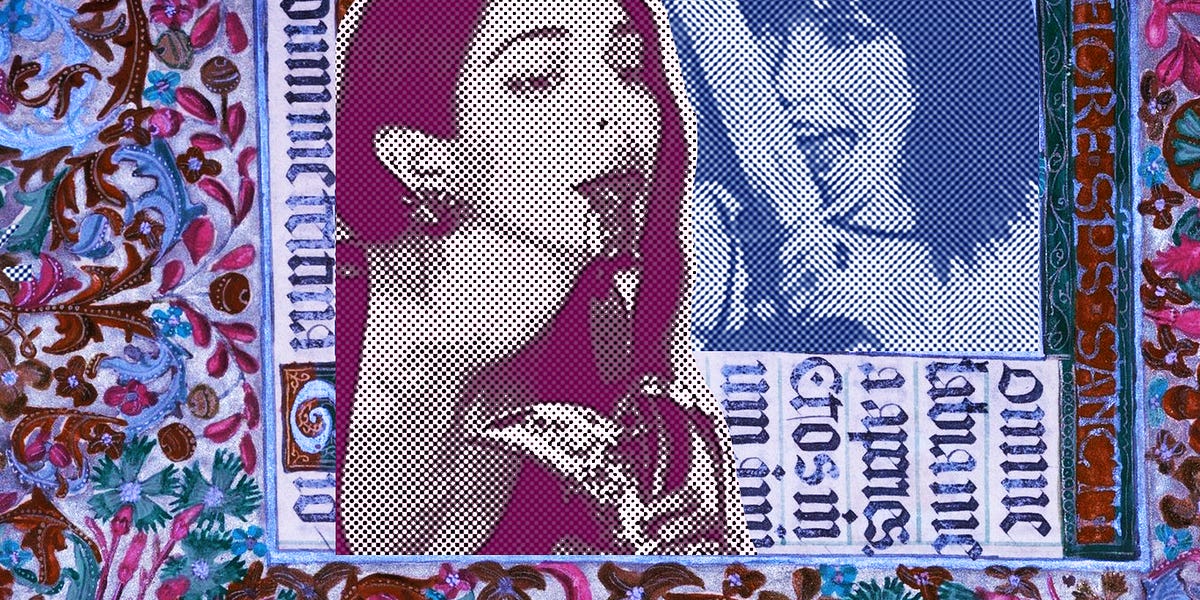sus
Moderator
Clearly some Kate Bush stuff happening in this music vid.
One of 2020's better music essays—on crushing, Catholicism, the role of fantasy.

on caroline polachek, carly rae jepsen, & the ecstatic agony of crushing
how two of 2019's most polished pop albums provide a roadmap to the delirious highs and abject lows of capital-Y Yearning — feat. britney, barthes, and more!
While listening to Pang, I spent a lot of time considering desire in the sacred as well as erotic sense. One of the aftershocks of an even vaguely Catholic upbringing — you can take the girl out of after-school catechism classes, but you can never really take the catechism classes out of the girl — is that the only feeling that ever rivals the intensity of a full-blooded crush is the simultaneous certainty that you ought to suffer for it. “I’m beginning to see why I would have been drawn to monastic life if I lived in the Middle Ages,” I’d written in one of my more humiliating diary entries, attempting to dissect the agony of having a crush so incomprehensible he might as well have been God to my pitifully adolescent, rat-brained self. “As a girl, that pure unadulterated capacity for want inside me feels so intense that faith in a higher power would be the only vessel large enough to even begin comprehending it.”
Roland Barthes’ A Lover’s Discourse: Fragments casts lovers and neurotic literary theorists as possessors of the same gaze: “I look for signs, but of what? What is the object of my reading? Is it: am I loved (am I loved no longer, am I still loved)? Is it my future that I am trying to read, deciphering in what is inscribed the announcement of what will happen to me, according to a method which combines paleography and manticism? Isn't it rather, all things considered, that I remain suspended on this question whose answer I tirelessly seek in the other's face: What am I worth?” In his immaculate 2008 debut single “Crush” — a song whose chorus begs to be sung along with ardent, soaring falsetto and histrionic gesticulations whenever you’re lucky enough to hear it — American Idol season seven runner-up David Archuleta echoes the same anxieties: “Do you catch a breath when I look at you? Are you holding back like the way I do?” Asymmetric desire is its own private, agonizing kind of pleasure; at its most thorough, it’s a combination of piety and hermeneutics. You know you’re ensnared when you feel like the world’s most insufferable semiotician.
Pairs well with Alexandra Molotkow's "An Erotics of Hypochondria":
A crush begets superstition and ritual. You might spend hours poring over the most forgettable words and gestures, counting text messages and their characters, asking friends what they think it all means. In the throes of hypochondria, you can spend hours scrolling through medical sites, studying symptom lists, checking your glands or palpating your abdomen, and asking friends what they think it all means. Proof is scarce in either case, but “evidence” is everywhere: a song you both love plays at the drugstore; a movie whose lead reminds you of them (everyone and everything does) gets together with a character who looks a little like you. These are “signs,” enough to sustain hope.
This is a thread on contemporary pop music, limerence, hypochondria, narcissism, unrequited love, and crush theory.
